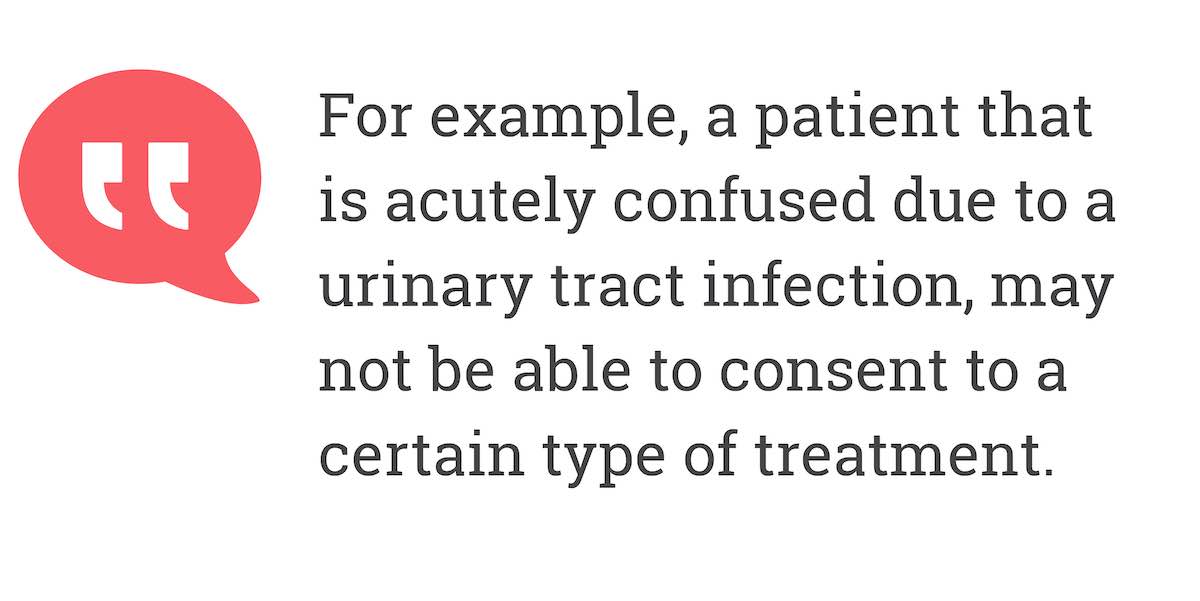
Dementia Psychiatrist and Founder of Hometouch, Jamie Wilson, discusses why being able to assess mental capacity is such an important clinical skill, and how you can add it to your arsenal.
Topics covered in this article
Why Is It Important To Assess The Mental Capacity?
When Is A Mental Capacity Assessment Required?
Who Can Assess The Mental Capacity Of A Patient?nurses.co.uk.
What Is The Test For Assessing The Mental Capacity Of A Person?
Introduction
If you are a newly qualified nurse,knowing how to assess mental capacityis an important clinical skill.
Mental capacity is the ability of a person to make a specific decision at a required time.
It is regulated under the Mental Capacity Assessment Act (2005), which applies to people above the age of sixteen.
The Act mainly deals with the consent of a person regarding a certain matter at a specific time.
Therefore, the person’s decision-making ability to give consent on a certain matter is both context and time specific.
Why Is It Important To Assess The Mental Capacity?
Firstly, it helps to determine whether or not a person is suffering from some kind of impairment or disturbance in his or her mind.
Secondly, if it becomes apparent that there is some sort of impairment, then mental capacity assessment helps in determiningwhether this impairment is interfering with a person’s decision-making capacity.
When Is A Mental Capacity Assessment Required?
A mental capacity assessment is required mostly when it is evident that a person doesn’t have the mental capacity to make decisions when needed.
The evidence may be available in the form of an impairment or disturbance in the brain, which would be the reason behind the person not being able to make the decision.

For example, a patient that is acutely confused due to a urinary tract infection, may not be able to consent to a certain type of treatment.
In most clinical scenarios, a mental capacity assessment is required when a patient has to give his or her consent to undergo treatment, but it is observed that the patient is not able to make the decision due to some reason.
Sometimes, a person may make an “unwise” decision, but the law protects this person.
Just because you may not agree with the decision, it does not mean the person lacks capacity.
Who Can Assess The Mental Capacity Of A Patient?
The law has not laid down any restrictions regardingwho can assess the mental capacityof another individual.
However, healthcare professionals including psychologists, doctors, nurses, are most likely to carry out this assessment, since they are experienced in this area and also should understand what capacity in regard to.
Legal Protection And Consent
Nurses and other health care workers need legal protection from a patient; in most cases, legal protection comes through the consent of the patient.
To explain this, a patient giving a blood sample to the nurse is giving the nurse appropriate informed consent.
That means the patient knows clearly why and what the blood test would involve.
If you are a nurse, and want to improve your skills in assessing the mental capacity of patients, then there are a few things that you need to do.
Training
Firstly, you will have to take training on the Mental Capacity Act (MCA) so that you understand the basics.
Since a nurse is someone who the patient is directly linked with when a decision needs to be made, some basic familiarity with the MCA is crucial.
Record Keeping
Even though there is no statutory requirement for record-keeping, under the code of practice nurses are obliged to maintain a record of the patient’s assessments, carry out the mental assessmentdirectly with the patient and work in the best interests of the patient.
What Is The Test For Assessing The Mental Capacity Of A Person?
A two-stage test is used for assessing the mental capacity of a person:
1. Diagnostic Test
2. Functional Test
Diagnostic Test
The first test, known as the ‘diagnostic test’, is used for determining whether or not the person has some impairment or disturbance in the brain that is interfering or hindering the person’s ability to make decisions.
Furthermore, it must be seen whether the impairment or disturbance is of a temporary or permanent nature.
Functional Test
The second test known as the ‘functional test’ is linked with the first test.
When it becomes apparent that the person is suffering from an impairment, at this stage it is determined whether or not that impairment has stopped the person from making a decision at a specific time.
To conduct the functional test, a few factors need to be determined:
● The person is unable to understand the information related to the decision.
● The person can’t remember the information long enough to make the decision.
● The person can’t use the information in the right way to make the decision.
● The person lacks the ability to communicate the decision by any means.
Nurses should understand that patients have to have mental capacity before they can agree to care or treatment.
They cannot give or withhold consent if they lack mental capacity.
Now that you know how to assess the mental capacity of a patient, you will be able to determine whether or not a person lacks the mental capacity to make a decision without any difficulty.
Let me know in the comments your thoughts on assessing mental capacity - let's chat there!
Oh, and please Like this article to let me know you enjoyed it - thank you!
This blog is taken from - Nurses.co.uk
